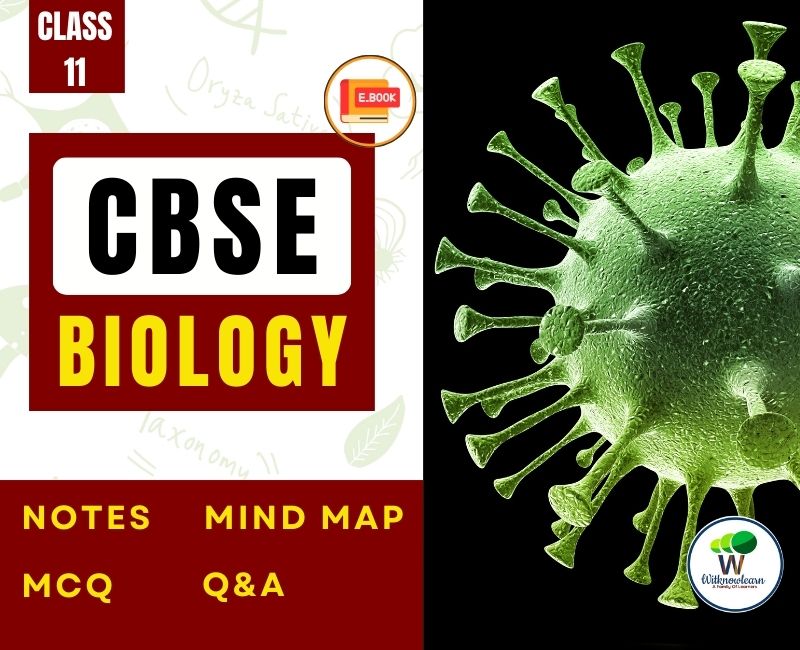Cell The Unit Of Life Class 11 Notes, Mind map And MCQ: Boost Your NEET Revision
Welcome to our comprehensive article on Cell The Unit Of Life Class 11 Notes, Mind map And MCQ: Boost Your NEET Revision. In this information-packed guide, we will take you through the fascinating world of cells, which are the fundamental units of life.
Whether you are a student preparing for NEET or simply curious to understand the intricacies of cellular biology, this article has got you covered. Our expertly crafted class 11 notes provide a concise summary of the cell structure and function, ensuring that you grasp the key concepts effectively.
Additionally, our mind map will visually guide you through the various types of cells, their organelles, and their functions, making it easier for you to remember and retain the information. To enhance your NEET preparation, we have also included multiple-choice questions (MCQs) that test your understanding of cells. Our carefully curated questions cover a wide range of topics, helping you gauge your knowledge and practice for the exam. So, dive into this article to bolster your NEET revision and equip yourself with a solid foundation of cell biology. Let’s unlock the mysteries of life at the cellular level!
The cell is often referred to as the fundamental unit of life, and its study is pivotal for Class 11 students, especially those preparing for competitive exams like NEET. The chapter 'Cell: The Unit of Life' in Class 11 Biology, which is Chapter 8, lays down the foundation for understanding the complex processes that govern life at the microscopic level. At WitKnowLearn, we emphasize the significance of this chapter and provide students with comprehensive Cell the Unit of Life Class 11 Notes for NEET, ensuring they have the necessary tools to excel.
Our resources include meticulously prepared Notes of Cell the Unit of Life Class 11, which offer detailed explanations of cellular structures, functions, and the importance of cells in the continuity of life. These notes are designed to cater to the specific needs of NEET aspirants, with clear diagrams and simplified explanations that make the complex subject matter easy to understand and remember.
For effective revision and self-assessment, the Cell the Unit of Life MCQs are invaluable. These include a wide array of questions that are likely to appear in exams, complete with answers for students to check their understanding. The Cell the Unit of Life Class 11 MCQ for NEET is tailored to match the pattern of the NEET exam, giving students a real-time experience of the actual exam scenario.
Understanding through visualization is made possible with our Cell the Unit of Life Class 11 Mind Map, providing a graphical representation of the cell's components and their functions. This is particularly useful for visual learners who can benefit from seeing the connections between different cellular processes.
Furthermore, the Cell the Unit of Life Short Notes for NEET are perfect for quick last-minute revisions, ensuring that students can go over the key points without having to sift through extensive material. The MCQ of Cell the Unit of Life Class 11 further helps students to practice and perfect their understanding of the chapter.
In conclusion, with the Cell the Unit of Life Class 11 Notes and a variety of practice questions available at WitKnowLearn, students are well-equipped to tackle Chapter 8 of the Class 11 biology curriculum and prepare for NEET with confidence and clarity.
Structure and Function of a Cell
A cell is the basic unit of life, much like a building block in a huge structure. It is the smallest unit that can carry out all life processes. Cells have different parts, each with its own function. For example, the cell membrane acts like a gatekeeper, deciding what goes in and out of the cell, while the nucleus is like the brain of the cell, holding all the genetic information.
Types of Cells - Prokaryotic and Eukaryotic
There are two main types of cells: prokaryotic and eukaryotic. Prokaryotic cells, like bacteria, are simpler and don't have a nucleus. Eukaryotic cells, like those in plants and animals, are more complex and have a nucleus and other specialized structures called organelles.
Cell Organelles and Their Functions
Cell organelles are like tiny organs inside the cell, each with a special job. The mitochondria are like power plants, producing energy. The ribosomes are like factories, making proteins. The Golgi apparatus packages and ships these proteins, and the endoplasmic reticulum is like a production line where lipids and proteins are made.
Cell Division and Reproduction
Cells reproduce by dividing. There are two main types of cell division: mitosis and meiosis. Mitosis creates two identical cells, perfect for growing or repairing the body. Meiosis creates cells with half the usual number of chromosomes, which is important for sexual reproduction.
Cell Theory and Its Significance
Cell theory is a fundamental concept in biology. It says that all living things are made of cells, cells are the basic units of life, and all cells come from other cells. This theory helps us understand the structure and function of living things and is the basis for a lot of biology.
Importance of Cells in Living Organisms
Cells are important because they are the basis of all life. Every part of an organism depends on cells. They carry out all the processes needed for life, from breathing to eating to growing.
Overview of NEET Revision Strategies
For NEET, a good revision strategy is key. This includes making a study schedule, focusing on weak areas, and reviewing all the important concepts regularly. Practice with past papers and mock tests is also important to get used to the exam format.
Using Mind Maps for Effective Revision
Mind maps are a great way to revise. They help you visualize information and see how different concepts are connected. This can make it easier to remember information and understand complex topics.
NEET MCQs on Cell Biology MCQs are a big part of the NEET exam. Practicing with MCQs on cell biology can help you test your knowledge, see what areas you need to work on, and get better at answering questions quickly and accurately.






